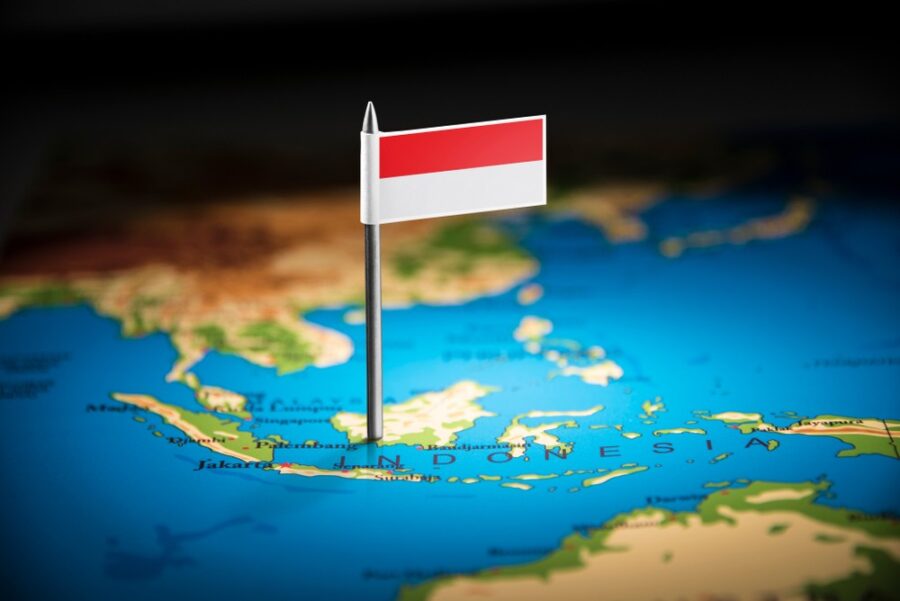Indonesia blocks over 2 million gambling websites

Indonesia’s Ministry of Communication and Digital Affairs shut down more than 2 million online gambling websites between October 20 and November 2, as part of a national crackdown on illegal gaming.
According to Antara News, Minister Meutya Hafid said that 2,458,934 websites and related content were taken down, including 2.1 million websites and over 123,000 file-sharing items across major platforms such as Meta, Google, YouTube, and X.
The initiative followed reports from the Financial Transaction Report and Analysis Center indicating a 57% fall in online gambling transactions compared to 2024.
Hafid said 23,604 bank accounts linked to gambling operations were also identified and referred to the Financial Transaction Report and Analysis Center for blocking. She said, “We need to understand that apart from access, bank accounts also become a factor in internet crimes.”
The Ministry and Financial Transaction Report and Analysis Center are expanding cooperation with international counterparts, as President Prabowo Subianto called online gambling a “cross-border organized crime” during the Asia-Pacific Economic Cooperation Summit.
According to the Financial Transaction Report and Analysis Center, total online gambling transactions reached RP155 trillion (US$9.3 billion)1 IDR = 0.0001 USD
2025-11-07Powered by CMG CurrenShift in 2025, down from RP359 trillion (US$22 billion)1 IDR = 0.0001 USD
2025-11-07Powered by CMG CurrenShift the previous year.
Deposits fell 45% to RP24.9 trillion (US$1.5 billion)1 IDR = 0.0001 USD
2025-11-07Powered by CMG CurrenShift, while 80% of gamblers earned under RP5 million (US$300)1 IDR = 0.0001 USD
2025-11-07Powered by CMG CurrenShift monthly. The lower-income gambling group declined nearly 68% compared with 2024.
Verticals:
Sectors:
Topics:
Dig Deeper
The Backstory
Inside Indonesia’s widening crackdown
Indonesia’s latest takedowns sit atop a layered campaign that has shifted from sporadic enforcement to coordinated disruption of money flows and access. The government’s financial intelligence unit, the Financial Transaction Reports and Analysis Center, has framed the surge in illicit betting as a national socio-economic threat tied to debt, fraud and household strain. In midyear guidance, the agency forecast online gambling turnover could reach RP150.36 trillion in 2025 without tougher action, after tracking RP976.8 trillion in activity from 2017 to mid-2025 across 709 million transactions. Player counts jumped, deposits swelled and millions of lower-income participants fell into arrears, prompting a whole-of-government response that uses data to match payment traces with domain blocks and law enforcement.
Officials say Operation Honeybee, a cross-agency push led with the Communications Ministry and the National Police, is designed to compress the market on multiple fronts. The operation applies financial intelligence to detect suspicious transactions, rallies agencies to act on referrals and pairs digital takedowns with discipline for civil servants who gamble. With stricter enforcement, authorities have projected a significant reduction in gambling activity and a clear signal to payment facilitators, banks and platforms that the risk calculus has changed. As the campaign has ramped up, enforcement has moved from ad hoc website suspensions to recurring network-level blocks and bank freezes, mirroring global playbooks that target both front-end access and back-end liquidity.
Following the money: from dormant accounts to mass freezes
Financial choke points have become central to Indonesia’s approach. The intelligence agency said it suspended activity in tens of thousands of accounts that bore hallmarks of gambling fund flows, including repurposed dormant bank accounts used as pass-through wallets. In an update on the surge of freezes and the public fallout, the agency detailed how schemes buy and recycle old accounts to hold and route bets, and it explained how customers swept up in precautionary suspensions could reverify ownership with their banks to restore access. The move underlines how the enforcement net is stretching beyond operators to intermediaries that enable quick deposits and withdrawals.
The account freezes have come in waves. The financial intelligence unit disclosed it had blocked more than 28,000 bank accounts tied to online gambling, warning consumers to shut unused accounts, keep personal data secure and report suspicious activity. Separately, the Financial Services Authority, known as OJK, directed banks to tighten controls. Regulators ordered freezes on 17,026 suspected accounts and told banks to step up due diligence, monitor dormant profiles and escalate red flags to the financial intelligence unit for tracing. The directive, first reported by Antara, is a sign that banking supervisors are moving in lockstep with enforcement bodies and trying to cut off the supply of clean channels for illicit funds.
OJK’s mandate extended beyond freezes. Banks were told to run cyber patrols for unauthorized use of logos and to coordinate through a new incident-response task force that can move faster when fresh clusters of accounts appear. As part of that move, OJK emphasized that financial crime risks rise when accounts are traded, a practice authorities say has become common as operators recruit local mules. The guidance anticipates both compliance upgrades and stricter penalties, with an explicit focus on stopping account buying and selling. The order to freeze 17,026 accounts is also reflected in Antara’s coverage of OJK’s instructions to banks, which cited plans for enhanced monitoring and rapid-response coordination.
Bandwidth versus behavior: lessons from Australia
Indonesia’s emphasis on site blocking echoes efforts in Australia, where the media and online gambling regulator has used the Telecommunications Act to starve unlicensed operators of reach. The Australian Communications and Media Authority has leaned on Internet providers to deny access to illicit platforms and affiliates at scale. A recent round saw the agency order blocks on five gambling sites that breached the Interactive Gambling Act 2001, adding to a long-running tally of restrictions. ACMA says blocking limits customer exposure to operators that lack responsible gambling protections and raises exit costs for businesses that evade licensing.
The regulator has stepped up pressure with periodic mass actions. In another sweep, ACMA moved against eight offshore sites while reminding consumers to check licensed provider registers and report suspicious services. Since 2017, ACMA says more than 1,200 illegal sites and affiliates have been blocked and roughly 220 operators have left the market. The Australian model underscores two policy levers now visible in Indonesia: deny access quickly and relentlessly, and attack the payments lifeline. While enforcement cultures differ, both countries are using network tools to drive unlicensed firms out and raise the cost of reentry, particularly for repeat brands that cycle domains.
Pressure builds as volumes surge, then ebb
The scale of transactions has made Indonesia’s problem both urgent and tractable. Authorities have tallied multiyear totals in the hundreds of trillions of rupiah and millions of active bettors. The intelligence unit has warned that a large share of gamblers earn less than RP5 million per month, with many reporting heavy debt burdens and spending that consumes most of their income. That socioeconomic profile has helped frame the crackdown as more than a law enforcement issue, with officials linking gambling flows to fraud, household instability and financial stress that can ripple across the economy.
Amid the enforcement wave, officials say transaction volumes have begun to decline, a sign that access blocks and account freezes are disrupting operations. Projections for 2025 still imply a heavy baseline, but the agency backing Operation Honeybee has forecast a steep reduction in activity under tighter controls. The message is that consistent site-blocking and banking surveillance can cool a market that expanded rapidly in 2023 and 2024, especially if coordination extends to global platforms where gambling content spreads and to cross-border partners who can clamp down on payment nodes abroad. The gap between headline turnover and actual cashouts, they argue, can be narrowed by removing the easiest ramps in and out of the system.
What regulators expect next
Enforcement is moving toward permanent infrastructure. Regulators have signaled new rules that would formalize the role of Internet service providers in prevention and make bank monitoring of dormant and mule accounts routine. OJK’s task force aims to cut response times when rings shift tactics or when a new burst of accounts lights up. Banks are expected to maintain enhanced due diligence for higher-risk segments and route suspicious patterns to investigators quickly. The intelligence unit’s guidance urges consumers to help, by shutting idle accounts, protecting data and reporting anomalies that may indicate account trade or coercion.
The government is also leaning on major platforms to remove gambling content and impersonations of bank brands. That aligns with a broader push to strip unlicensed operators of legitimacy and reduce the funnel of new users from social channels. If policy follows Australia’s arc, the cost of staying unlicensed will climb as repeat offenders lose domains, payment channels and advertising reach. The stakes for Indonesia are clear: if enforcement sustains, officials say activity can be pushed lower even as operators try to regenerate domains and payment routes. If it fizzles, the market risks settling into a steady state that keeps volumes high and social costs elevated.
For now, the trajectory points to more blocks, more freezes and deeper coordination across agencies. The model is straightforward but resource intensive: cut access, cut funding, compress the pathways in between and keep pressure on the platforms that amplify demand. Indonesia’s regulators are betting that this combination, already visible in account freezes, banking directives and lessons from Australia’s site blocks, can reset the market’s incentives and, over time, shrink a problem that has grown too big to ignore.






